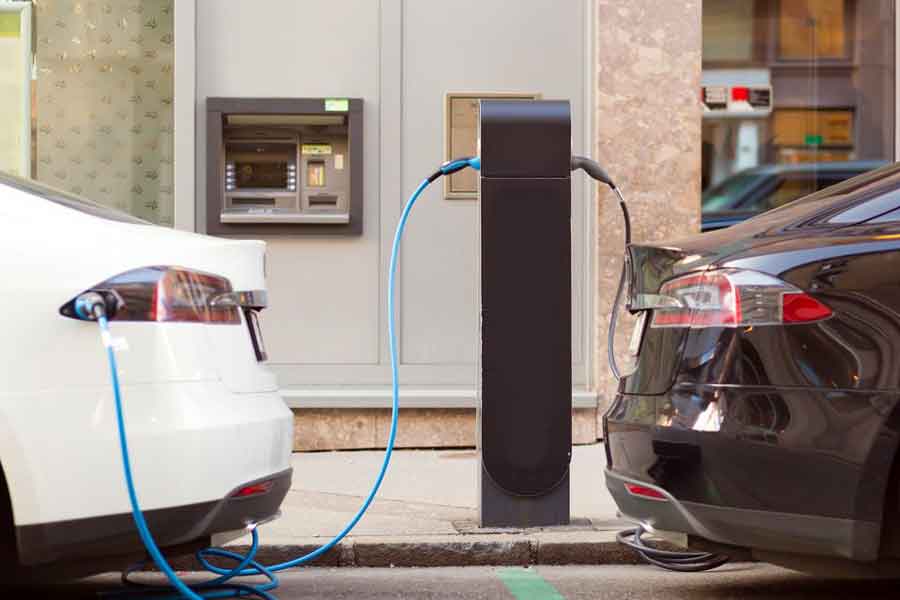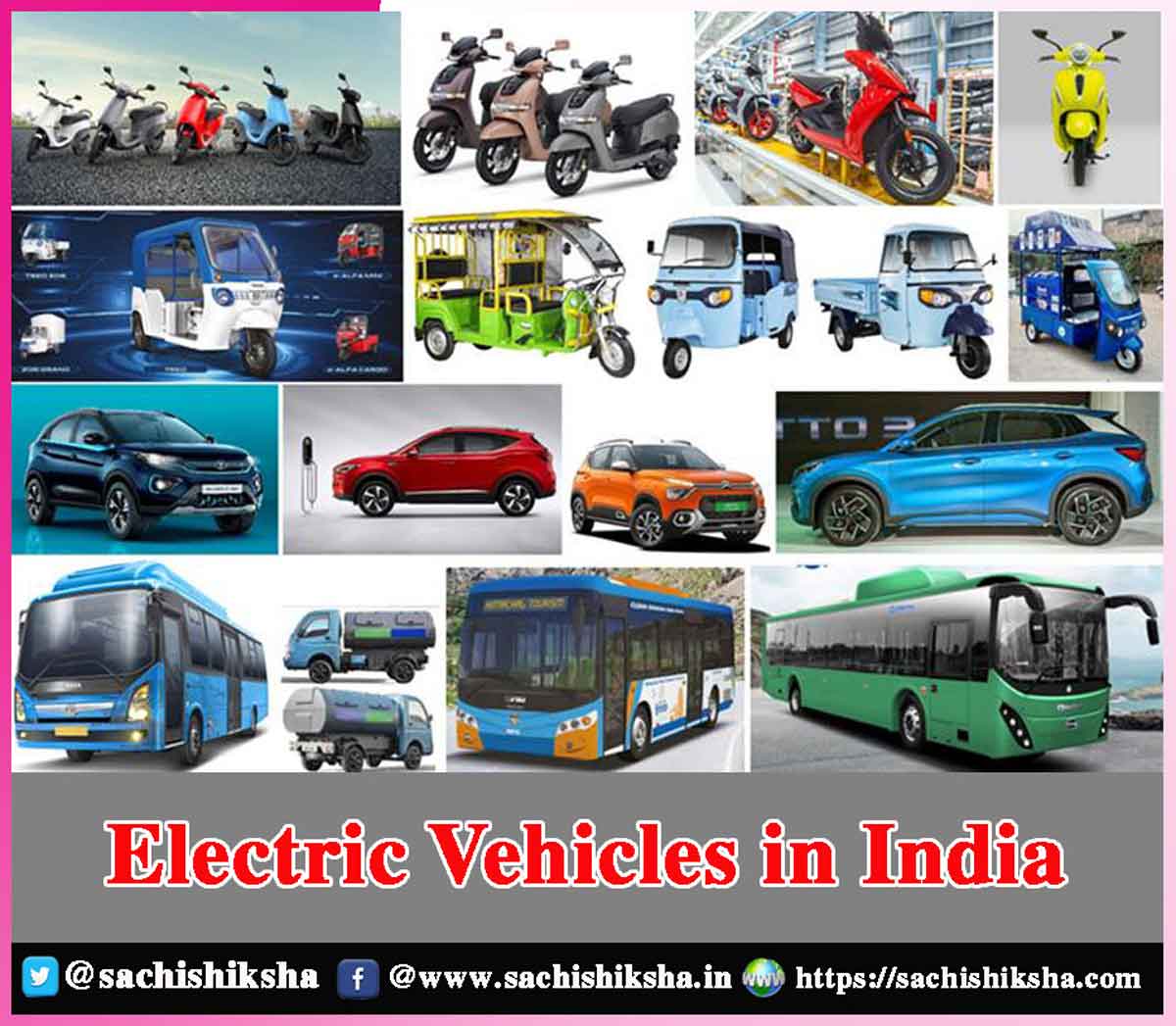Electric Vehicles in India
Introduction : A few years ago, electric vehicles were considered as an imaginative concept that could not compete with standard gasoline and diesel vehicles yet, they are currently one of the highest expanding categories in the motor vehicle industry by 2024. Although EVs certainly provide many advantages and have matured into appealing machines right now, the public’s view of electric vehicles as well as knowledge of pollutants from ICE vehicles also play a significant part in the quick growth in adoption of electric cars across the country.
Table of Contents
Future of EV
India is set to adopt an electric vehicle (EV) future as 70% of tier-one Indian car consumers say they’re prepared to look into an electric car for their next car, opposed to a record-high worldwide median of 52 percent. Although the Indian internal-combustion engine (ICE) vehicle industry has grown in recent years, the quick shift to electrifying is a watershed moment for the nation’s economy. Motivated by an evolution in worldwide environmental policy, national and state governments have launched efforts such as the Faster Adoption and Production of Electric Vehicles (FAME) program to accelerate the widespread use of EVs.

Public opinion indicates that the move to electric vehicles will gain speed. A large percentage of consumers are considering purchasing an EV as their next vehicle, with a clear preference for pure battery battery-powered cars (49 percent) over plug-in hybrid electric vehicles (21%).
Impact of Electric Vehicles on Environment
Electric vehicles (EVs) have emerged as a promising alternative to traditional internal combustion engine vehicles, offering the potential to significantly reduce the environmental impact of transportation. While EVs themselves produce zero tailpipe emissions, their overall environmental impact encompasses various factors.
Zero Tailpipe Emissions:
Perhaps the primary benefits of electric vehicles are the capacity to cut the release of greenhouse gases. Traditional vehicles powered by gasoline or diesel emit CO2 and other pollutants directly into the atmosphere, contributing to air pollution and climate change. In contrast, EVs produce zero tailpipe emissions, making them cleaner to operate, especially in urban areas where air quality is a concern.
Electricity Generation:
However, the environmental benefits of EVs depend on how electricity is generated. If electricity comes from renewable sources such as solar, wind, or hydroelectric power, the overall carbon footprint of EVs can be significantly lower compared to conventional vehicles. On the other hand, if electricity is generated from coal or other fossil fuels, the environmental benefits may be diminished, as these power sources emit greenhouse gases and pollutants during electricity generation.
Manufacturing of EV:
The manufacturing process of EVs also has environmental implications. The production of electric vehicle components, particularly batteries, requires significant energy and raw materials, including lithium, cobalt, and nickel. The extraction and processing of these materials can have environmental consequences, such as habitat destruction, water pollution, and carbon emissions. However, advancements in battery technology and manufacturing processes are continuously reducing the environmental impact of EV production.
Disposal & Recycling of EV Batteries:
Another aspect to consider is the end-of-life disposal of EV batteries. While EV batteries can have a long lifespan, they eventually degrade and need to be replaced. Proper disposal and recycling of these batteries are essential to prevent environmental contamination from heavy metals and other hazardous materials. Developing efficient recycling methods for EV batteries is crucial to minimize their environmental impact and maximize resource recovery.
Despite these challenges, the overall environmental impact of electric vehicles remains favorable compared to internal combustion engine vehicles, especially as renewable energy sources become more prevalent and battery technology continues to improve. Additionally, the widespread adoption of EVs has the potential to reduce dependence on fossil fuels, mitigate air pollution, and contribute to efforts to combat climate change.
Impact of Electric Vehicles on Indian Economy
The emergence of electric vehicles (EVs) has the potential to significantly impact the Indian economy in multifaceted ways. From environmental sustainability to economic growth, the transition represents a paradigm shift in the automotive industry.
- Reduction in Healthcare Costs: Firstly, the adoption of EVs can address India’s environmental challenges. With some of the most polluted cities globally, EVs offer a cleaner alternative to traditional internal combustion engine vehicles, reducing harmful emissions and mitigating air pollution. This improvement in air quality can lead to significant public health benefits, reducing healthcare costs associated with pollution-related illnesses.
- Reduction in Dependence on Imported Fossil Fuels: Secondly, the shift towards EVs can reduce India’s dependence on imported fossil fuels. As a net importer of oil, India’s economy is susceptible to fluctuations in global oil prices. By transitioning to electric mobility, India can diversify its energy sources, promote energy security, and reduce its trade deficit. Additionally, investing in domestic renewable energy infrastructure to power EVs can create jobs and stimulate economic growth in the renewable energy sector.
- Innovation & Technological Advancements: Moreover, the rise of EVs presents opportunities for innovation and technological advancement in India. The government’s push for electric mobility has spurred investment in research and development, leading to the development of indigenous EV technologies. This fosters a culture of innovation and entrepreneurship, positioning India as a global leader in EV technology and manufacturing. The growth of the EV ecosystem also creates opportunities for skilled employment in manufacturing, engineering, and related sectors.
- Revolution in Transportation & Mobility Landscape: Furthermore, the transition to EVs can revolutionize India’s transportation and mobility landscape. EVs offer lower operating costs and reduced maintenance requirements compared to conventional vehicles, making them more affordable to own and operate in the long run. This can increase accessibility to transportation, particularly in the rural areas where public transportation infrastructure is limited.
Additionally, the integration of EVs with smart grid technologies can enable efficient energy management and grid stability, paving the way for a more sustainable and resilient energy infrastructure. However, the widespread adoption of EVs also presents challenges that need to be addressed. These include the need for robust charging infrastructure, incentives to promote EV adoption, and the management of battery waste and recycling.
Challenges of Electric Vehicles
Electric vehicles (EVs) hold immense promise for India’s sustainable transportation future, but several challenges hinder their widespread adoption and integration into the country’s automotive landscape.
- High Initial Cost: One of the primary challenges is the high upfront cost of EVs compared to conventional internal combustion engine vehicles. While EV prices have been decreasing globally, they remain relatively expensive in India due to factors such as import duties on components and batteries.
- Lack of Charging Infrastructure: The limited availability of charging infrastructure is a significant barrier to EV adoption in India. While efforts are underway to expand charging networks, particularly in urban areas, the pace of development needs to accelerate.
- Infrastructure Challenges: India faces infrastructural challenges beyond charging stations. For instance, the power grid needs upgrades to support the increased electricity demand from EVs. Moreover, many Indian cities lack adequate road infrastructure, including smooth roads and designated lanes for EVs, which can hinder their adoption and usage.
- Consumer Awareness and Perception: Many consumers still harbor concerns about factors such as battery life, charging times, and maintenance costs, which may deter them from considering EVs as a viable alternative to traditional vehicles.
- Policy and Regulatory Framework: While the Indian government has introduced various incentives and subsidies to promote EV adoption, there is a need for a more comprehensive and consistent policy framework to support the transition.
Conclusion
Addressing these challenges requires concerted efforts from the government, industry players, and other stakeholders. Collaborative initiatives focusing on infrastructure development, technology innovation, policy reforms, and consumer education are vital for overcoming barriers and accelerating the adoption of electric vehicles in India.













































